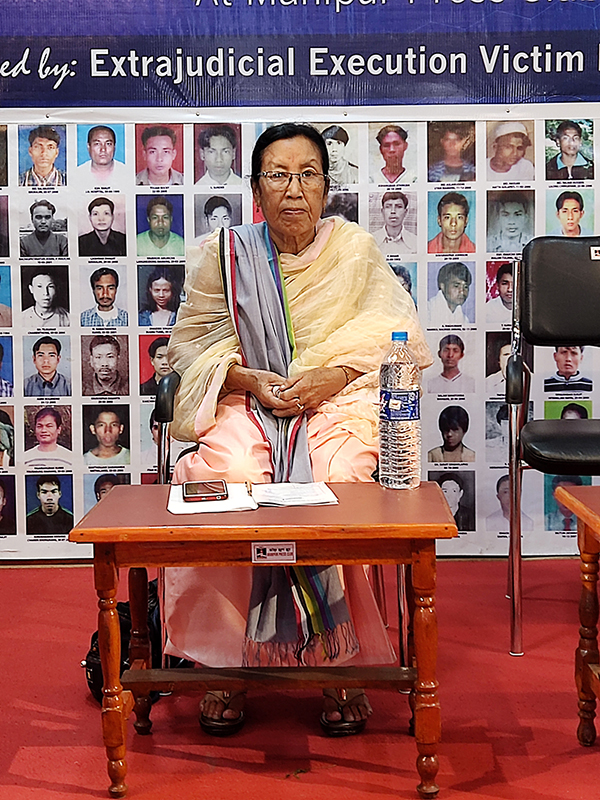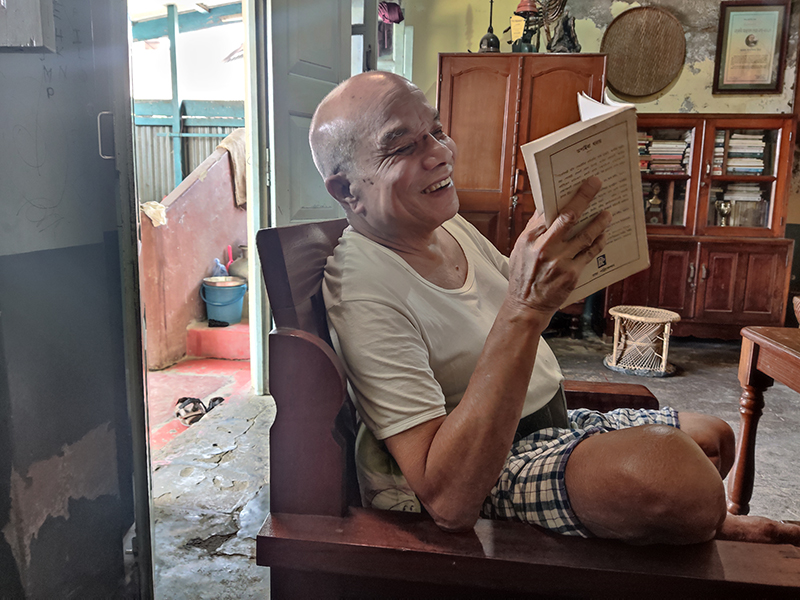Ronidkumar Chingangbam
Project Period: One year and six months
This Foundation Project implemented by IFA will study the sociopolitical and cultural history of Manipur between the 1960s and 1970s through the work of a group of poets known as the Angry Poets of Manipur. The project will attempt to understand poverty, unemployment and corruption during this time through their writing, and detailed interviews with them. Ronidkumar Chingangbam, aka Akhu, is the Coordinator for this project.
Ronidkumar Chingangbam, popularly known by his stage name Akhu is a lyricist, singer and founder of the folk-rock band Imphal Talkies and The Howlers. Besides being a performer, he has worked with children in Manipur on a music project, A Native Tongue Called Peace. His band Imphal Talkies was among the 32 bands chosen from 32 countries by In Place of War and Unconvention for the Album of the Revolution. He has collaborated with artists and bands like Rahul Ram, Guru Reweben Mashangva, and Asian Dub Foundation. His music was featured in campaigns by Amnesty International India. He created a musical performance based on notions of Manipuri identity embedded in literature and folklore of the Meitei diaspora with support from IFA under the Arts Practice programme in 2017-18. Ronidkumar’s deep engagement with the sociopolitical and cultural spheres of Manipur as a musician and songwriter makes him a suitable Coordinator for this project.
In the modern history of Manipur, the 1960s and 70s are often remembered as times of turmoil. Back then, Manipur was a Union Territory. The 1960s witnessed particular angst and radical shift of thought among the youth of Manipur, which led to the formation of many cultural and political groups and movements. Around the same time, a group of young people with support from tribal leaders in the hills formed the Revolutionary Government of Manipur, which would subsequently become the bedrock for the insurgency movements in the region. The angst and frustration among the youth also found expression in various artistic forms.
A group of young poets emerged on the scene during the late 1960s, responding to their times through poetry. They would be later called the Angry Poets of Manipur. The themes of their poetry were poverty, unemployment, and corruption, which had added to the woes of the Manipuri society. This project will focus on the work of the Angry Poets by situating them within the sociopolitical and cultural contexts that propelled them to respond to the times they lived in. Furthermore, this project will examine how literature became a key influence on the evolution of various political movements, encouraging them to speak truth to power. It will also explore how politics inspired literature to be more people and issue-centric. In a nutshell, this project will attempt to map an alternative history of Manipur through these writings during the 1960s and 70s.
Interviews with the Angry Poets will form the core of this project. Foregrounding the significance of their work during a crucial point in the history of Manipur, the project will explore the impetus behind their poetry and how they dealt with the challenges of censorship, pressures from the state and the criticism from the literary sphere. It will inquire whether depicting the reality of the people was a conscious effort and to what extent were the Angry Poets successful in becoming the voice for the suppressed and deprived. In addition, the project will study the accounts of resistance reflected in the poems to understand whether poetry as a literary form could still be relevant as a historical record of events that are eschewed from the mainstream discourses.
The outcome of this project will be a set of audiovisual songs based on the poetry and interviews. The Project Coordinator’s deliverables to IFA with the final report will be a set of audiovisual songs and documentation of the interviews from the field.
This project suitably addresses the framework of IFA’s Arts Research programme in the manner in which it attempts to study a relatively underexplored area of Manipur’s history through the work of poets, who not only bore witness to the tumultuous political climate in the region but also expressed discontent against the injustices and political instability.
IFA will ensure that the project is implemented on time and the funds expended are accounted for. IFA will also review the progress of the project at midterm and document it through an Implementation Memorandum. After the project is complete and deliverables are submitted, IFA will put together a Final Evaluation to share with the Trustees.
This project is made possible with support from BNP Paribas India.




